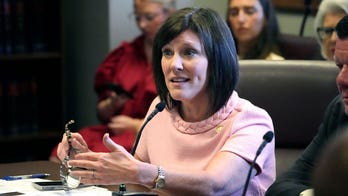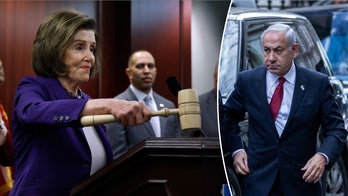President Obama on Sunday joined other world leaders in expressing heightened concern about the security of Syria’s chemical weapons amid increasing violence as rebel forces attempt to overthrow President Bashar al-Assad’s regime.
The concern arose as the Assad regime threatened to use chemical and biological weapons if attacked by a foreign country, and a report that more than 100 people were killed Sunday as rebel fighters attempted to take control of border crossings and capture Syria’s largest city, Aleppo.
The deaths, which included at least 24 government troops, bring the number killed to 19,000 since the unrest started this spring.
“Given the escalation in violence in Syria and the regime's increasing attacks on its own people, we remain very concerned about these weapons,” White House press secretary Jay Carney said.
Carney also said Obama met Sunday morning with his senior national security team about the situation and that the United States continues to work with allies and Syrian opposition forces on a political strategy in which Assad “leaves power as soon as possible.”
The White House comments came just hours after Israeli Prime Minister Benjamin Netanyahu expressed similar concerns.
Netanyahu told “Fox News Sunday” the Assad regime would likely fall soon, but that he is more focused on who would take control of the weapons.
He also attempted to clarify recent comments by the Israeli foreign ministry about seizing control of the weapons, saying alternatives exist but the possibility of the Assad regime not being replaced after falling should be a “common concern” among the U.S., Israel and other countries.
“In any case, we certainly don't want to be exposed to chemical weapons falling in the hands of Hezbollah or other terror groups,” Netanyahu said, “because that's something we can't be indifferent to.”
Though the Syrian government threatened to use weapons of mass destruction against an outside attack, Foreign Ministry spokesman Jihad Makdissi stressed the government would not use its unconventional arms against Syrian citizens.
Syria's decision to reveal the long-suspected existence of its chemical weapons suggests a desperate regime deeply shaken by an increasingly bold revolt that has scored a string of successes in the past couple of weeks, including a bomb attack that killed four high-level security officials, the capture of several border crossings and sustained offensives on the regime strongholds of Damascus and Aleppo.
Britain and Germany also have called for increased pressure on Assad and his repressive government to leave power, including the extension of a United Nations sanction that could result in military intervention.
GOP presidential candidate Mitt Romney has seized on the Syria crisis as an opportunity to dent Obama's foreign policy credentials, painting him as weak and indecisive in the face of more than a year of violence. But Romney's general prescriptions for what he would do differently have opened him to criticism from the Obama campaign that he is weighing in from the sidelines with "nothing but tough talk" while the president does the real work of managing the crisis.
Also this weekend, rebel forces reportedly seized a Syrian Army infantry school in the town of Musalmiyeh.
The Associated Press contributed to this report.





